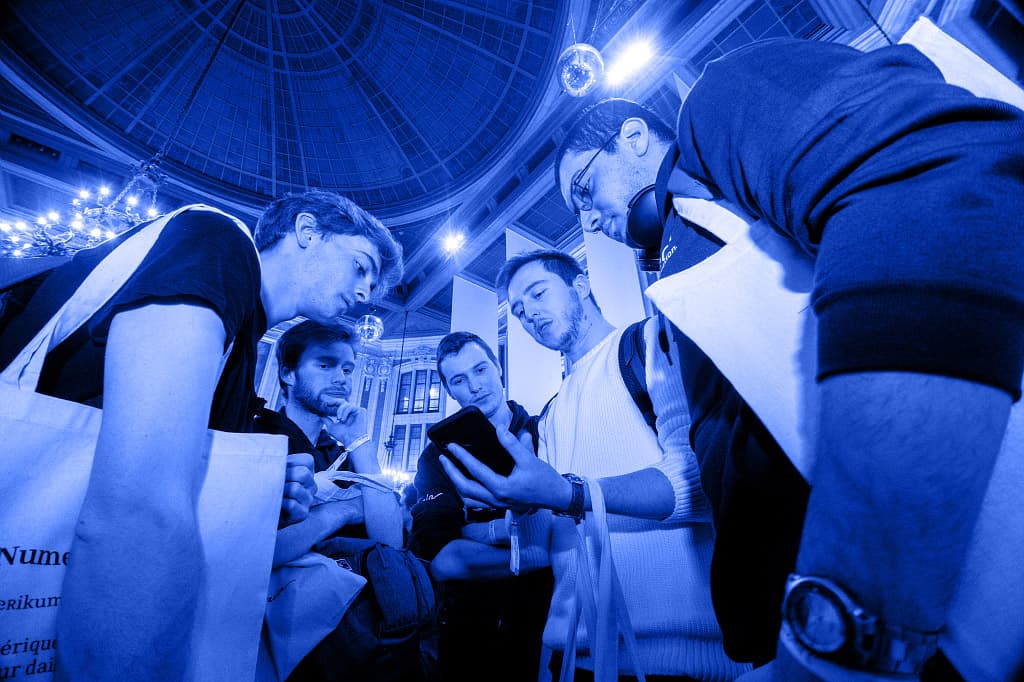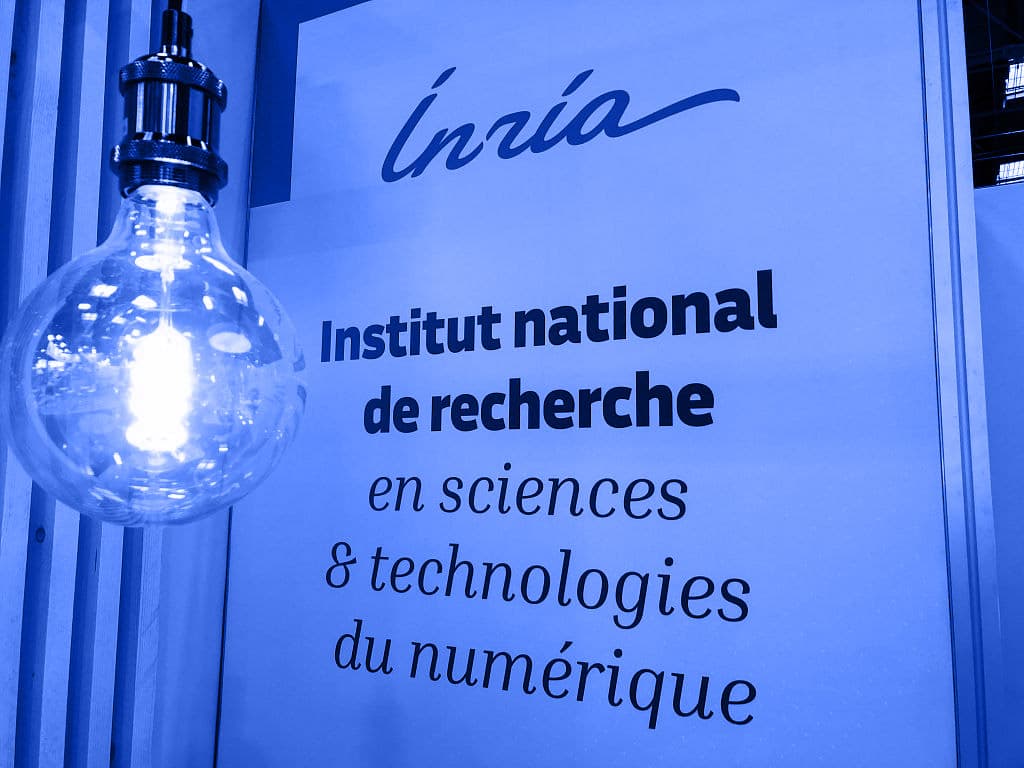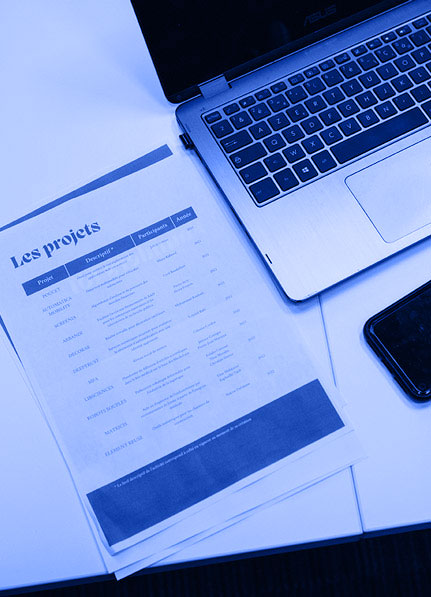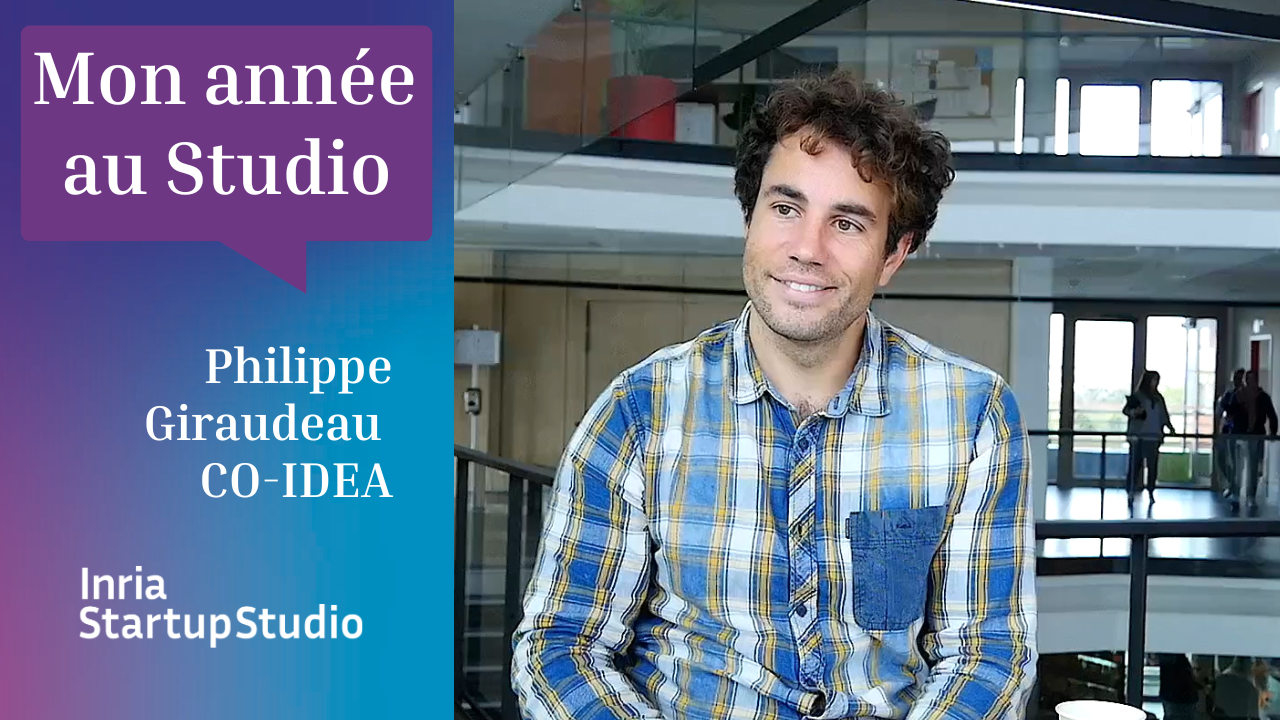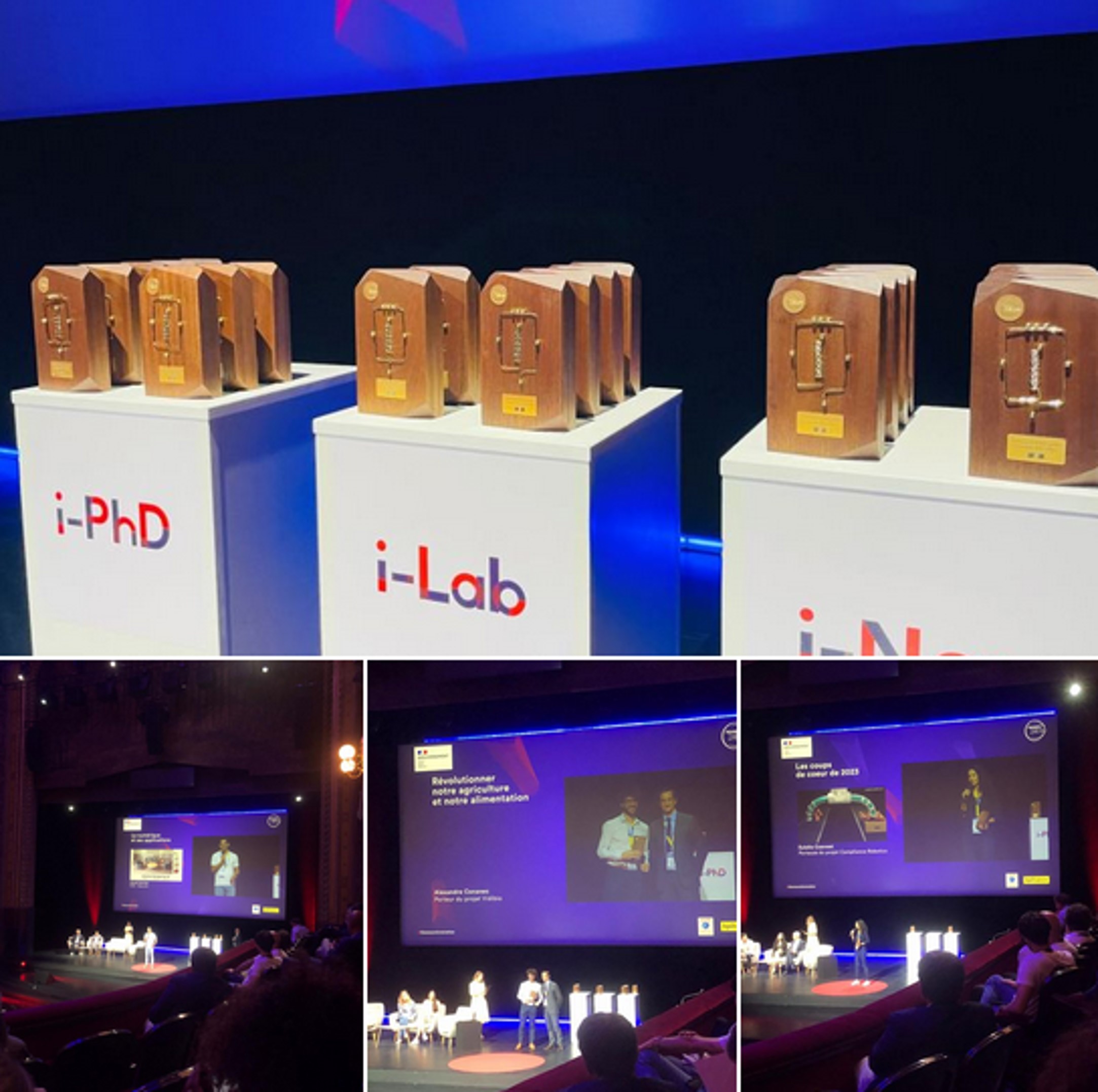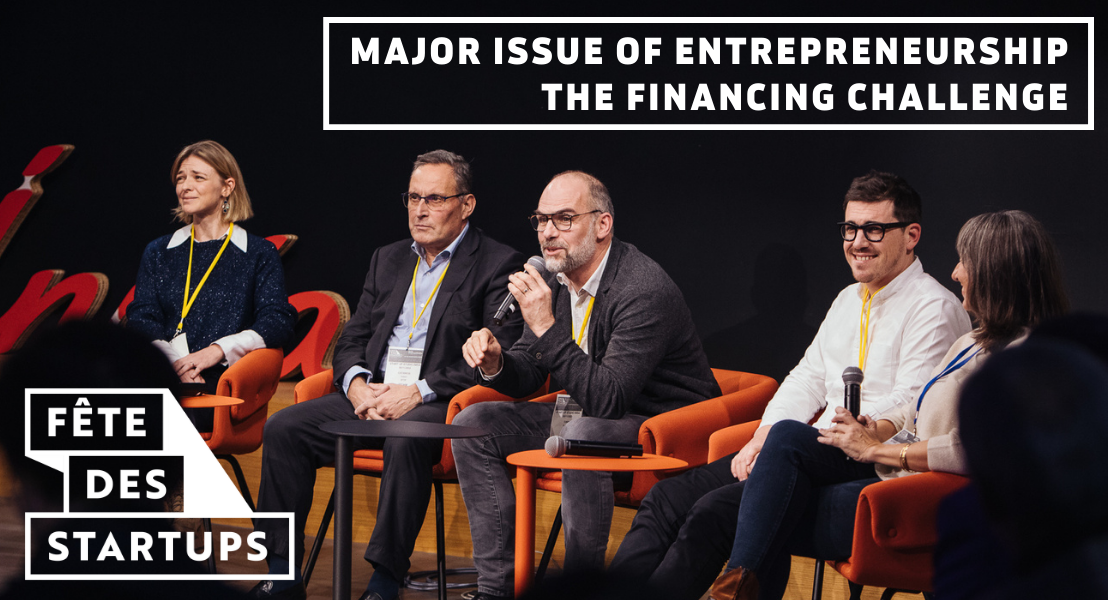
Major issue of entrepreneurship : the financing challenge
The Inria Startup Studio Startup Festival explored the transition from research to entrepreneurship around 3 round tables and a keynote. Skills, financing, success or reorientation, these exchanges highlighted the sharing of experience in order to enable entrepreneurs to resolve the challenges linked to the creation of a digital deeptech startup. This second panel addresses the challenge of financing, a major issue in entrepreneurship: what are the difficulties and the various sources of financing? How do you estimate your needs? Elsa Nicol, Hubert Catanese, William Eldin and François Cuny answer these questions !
While the skills challenge is a real challenge in entrepreneurship, the financing challenge is the main stress factor for entrepreneurs creating their startup: how to find the funds to structure and grow? A topic addressed at the Fête des Startups, organized on November 30 by Inria Startup Studio, through testimonials from :
- Elsa Nicol, Co-founder and CEO of Falco
- Hubert Catanese, CEO Inflexion Points Technology Partners
- William Eldin, Founder and CEO of XXII
- François Cuny, Deputy Managing Director for Innovation at Inria
In France, it’s hard to argue that deeptech-related topics lack funding. Nevertheless, obtaining funding remains an ordeal for many project leaders, whether they are still working as researchers or have passed the entrepreneurial hurdle.
The difficulty of finding financing
That’s what François Cuny, Deputy Director of Innovation at Inria, said after being interviewed by Sophie Pellat, co-director of Startup Studio: “Companies often find financing when their products or services reach a certain level of maturity. But before they can move from version 8.1 to version 8.2 of their software, entrepreneurs need to acquire – sometimes over a period of years – the skills that will enable them to develop and manage their structure on a day-to-day basis. This is a crucial stage, and here too, entrepreneurs need to be supported and financed. This is what Inria Startup Studio offers, in a rather unique way, by supporting up to two entrepreneurs per project for one year.”
A diversity of financing sources
In 2019, Elsa Nicol, co-founder and CEO of Falco, a startup that publishes a SaaS sensor management solution for marinas, benefited from this support: “We benefited from a certain comfort within ISS, in the sense that this support enabled us to finance the development of a Proof of Concept (POC) of our solution, putting us in the best conditions to integrate the Agoranov incubator, then to be subsidized by the BPI, and finally to join the Wilco gas pedal and benefit from an honor loan. We were thus able to rely on various sources of funding, and it was only this year that Hervé Lebret, co-director of the Startup Studio, put us in touch with investors.” Investors who had previously waited for the startup to prove itself before agreeing to finance it.
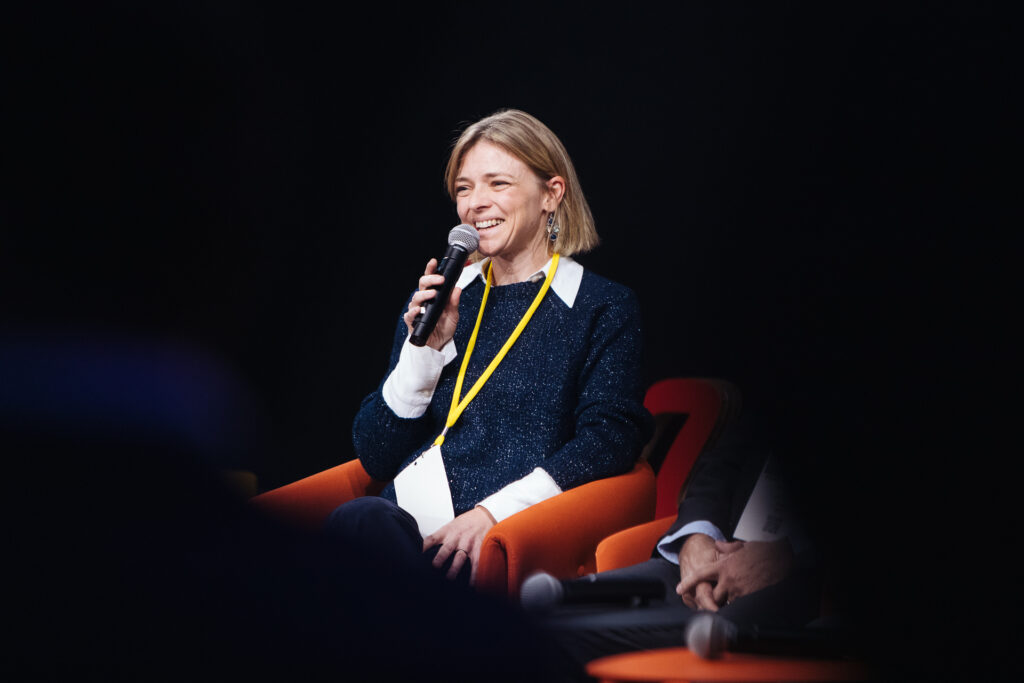
A shared experience for project managers
William Eldin is no stranger to this pattern. Founder in 2015 of startup XXII, a computer vision specialist, he already had a first entrepreneurial experience, co-founding Coyote, the famous radar warning system: “By 2009, we were already valued at over 100 million euros and faced an influx of potential investors, who were more interested in enriching themselves than really developing the company. Even the risk of a ban on our product didn’t hinder the growth of the company, which had sales of over 120 million euros, and an EBITDA of 50 million euros!”
Nevertheless, the regulator’s request to display the speed limit on the Coyote’s screen was to change things for William Eldin: “It was at this point that I looked into computer vision technologies and discovered the potential of this market. I sold Coyote and launched XXII in 2015, putting in two million euros of my own money. For three years, we ran POC after POC, but it was always difficult to convince investors, who were waiting for us to be able to generate sufficiently recurring revenues.”
After convincing a Business Angel to back him to the tune of 2 million euros, William Eldin saw the situation gradually unblocked when the BPI decided to follow him and take the lead in a new round of financing: “This enabled us to unlock almost 20 million euros in financing from other investors, and to take us to the next level, as we are now one of six artificial intelligence companies supported as part of the France 2030 investment plan. At the beginning of the year, we raised a further 22 million euros from the SNCF and Bouygues funds, among others”, enthuses the entrepreneur, who draws the following conclusion from his experience: “You have to be very careful when raising funds, and very careful about what you say to investors, because they all take note of your objectives. But the problem in France is this: it’s a small market, which means small sales and therefore difficulties in financing. You have to go international to find new sources of growth.”
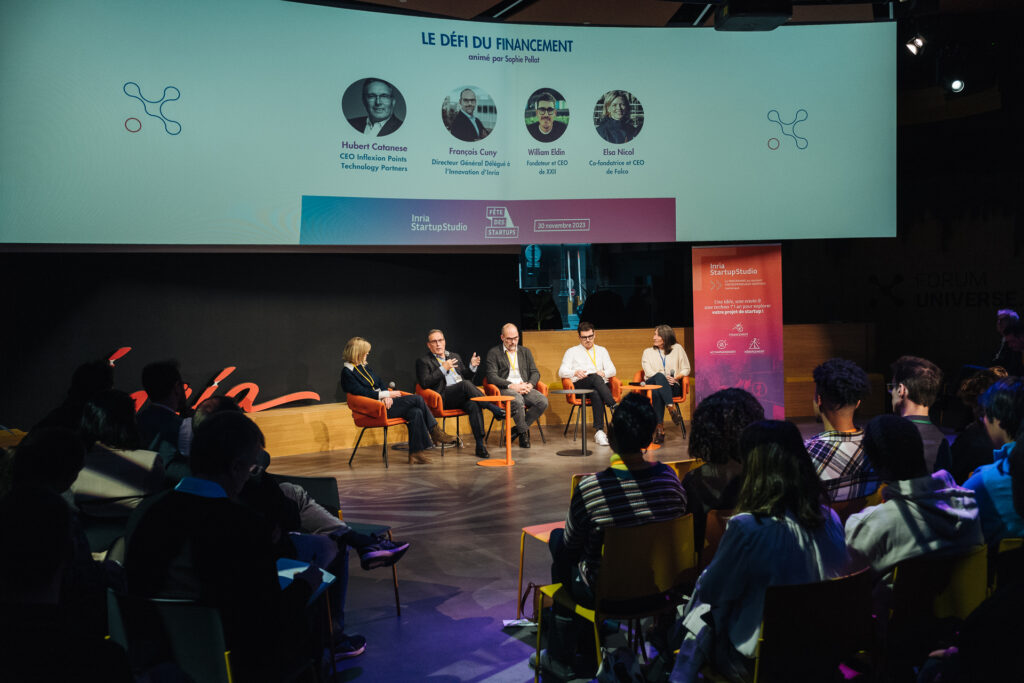
Estimate your needs
Hubert Catanese, CEO of investment bank Inflexion Points Technology Partners, shares this advice: “I used to work as an engineer for large IT groups and startups which, despite having a very good product, failed to find their market. There was a time when that didn’t stop you from raising a lot of money, but also from making a lot of mistakes! Raising money for no reason just makes things harder. On the other hand, in France, we have a very good pre-seed support offer, but we mustn’t forget the potential of large groups who find it hard to innovate and are often ready to finance or buy you out, if only for the team and the technologies it develops.”
“Entrepreneurs add value! We’ve already sold a company for 37 million euros, even though it only had sales of 50,000 euros! It’s an opportunity for the founder to have the means to embark on new projects, or the time to support other startups. says Hubert Catanese.
A testimonial in which François Cuny reflects Inria’s ambitions: “The value is you, the project leaders! Since 2019, the Startup Studio has supported around a hundred projects, but even before that, nearly 250 startups have been created over the past thirty years by Inria researchers. It’s important to bear in mind that industrial exits, marked by a buyout and integration within a large group, are far more frequent than capital-intensive exits. Launching a startup doesn’t always mean that you’re going to see very strong growth in your business, but our mission remains the same: to give scientists the opportunity to explore the path of entrepreneurship.”
Clément FAGES
Publication date: 02/02/2024
Want to get started ?
